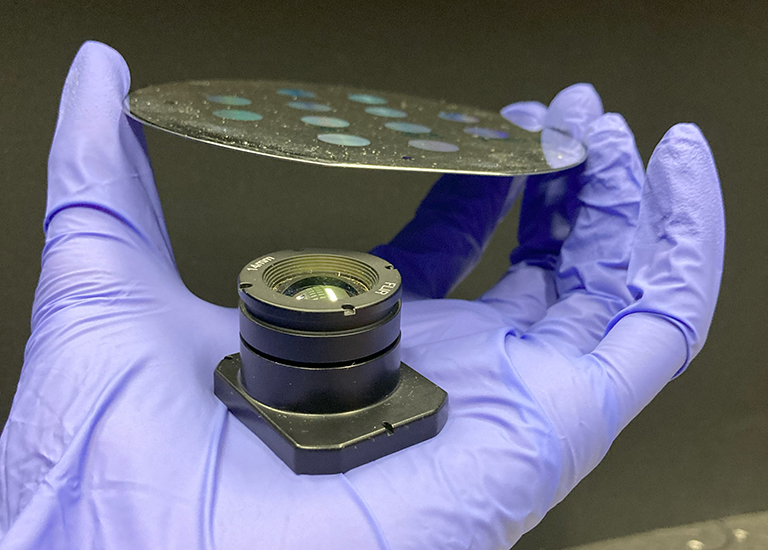Strategic technology is defined by its potential to disrupt existing technological standards, and forever change the way people solve an essential problem. Considering the rate at which technology develops today, there is a broad spectrum of contenders for this position, all sharing an immense potential to have a considerable impact on the world within the next few years.
1. Quantum Computing
Quantum computing may be what separates us from the greatest progress in science humanity has ever experienced. It would allow us to solve a wide array of essential issues relating to chemistry, physics, medicine, machine learning, economics, and many other fields central to human wellbeing.
While modern computers increase their efficiency almost exponentially, there are certain problems they can’t tackle, and chances are, won’t ever be able to. This is why scientists are now investing a lot of time into researching quantum computing.
2. Augmented Analytics
There is a certain extent at which humans can process and analyze data due to our natural cognitive capacities, and the amount of data sources have access to.
Probably what is the central scope of Augmented Analytics (AA) is making data more human-centric. AA aims to make it easier for people without a technical background to understand, decipher, and apply the data that they’ve collected.
By doing this, people will be able to coexist in a more equal and fruitful tech environment, allowing them to create products and services that are useful for society at large, without being distracted and even bogged down with analytics, which may sometimes be too demanding for people with backgrounds that have nothing to do with analytics, statistics, data science, or technology in general.
3. Digital Twin technology
When people are referring to a Digital Twin, they’re talking about a digital representation of a something that exists as a physical object or a system of some sort.
Digital Twins are made possible thanks to data science and applied mathematics. Their central goal is to digitally reiterate an object by recreating its physical qualities in simulated “real world” environments, that allow scientists and organizations to run realistic and highly precise tests.
The Digital Twin technology is commonly used in the manufacturing industry, the automotive industry, and is now being gradually rolled out in healthcare.
4. Autonomous things
Autonomous things have probably been a very discussed topic for decades now. Science fiction novels have often explored the idea of self-driving cars, and it’s safe to assume that we’ve come very close to achieving this goal and actually experiencing it first hand.
Autonomous things refer to the objects that can operate without being directed and controlled by a human, ranging from the above-mentioned cars to home robotics.
5. AI-driven development
AI is soon to become an indispensable tool in product and software development. It’s safe to assume that in a few years’ time, Artificial Intelligence will actually co-author software development alongside humans.
However, it’s also important to stress that AI-powered tools have already permeated various fields of human activity. For instance, even writing services like Grab My Essay and Studicus use Grammarly and Hemingway that are partly powered by AI and Machine Learning.
6. Empowered edge
Edge computing is an innovative principle that focuses on changing the computing infrastructure so that it’s much closer to the data source, which, in effect, will allow making processes considerably faster, by nearly eliminating latency.
7. Immersive technologies
Augmented Reality (AR), Mixed Reality (MR), and Virtual Reality (VR) will change the way humans will interact in both digital and real-life spaces.
MR, AR, and VR are all currently used in various corporate fields, like training and marketing. The idea behind it is to engage more senses when interacting with a product, thus creating a more engaging experience and holistic.
8. Blockchain
Blockchain is a revolutionary principle used to document and store information on the web. It can be applied in a very wide variety of apps and services like social media platforms, governmental voting systems, market predictions. Blockchain has also made cryptocurrencies possible, which are arguably one of the things we’ll use to exchange goods in the future.
9. Smart Spaces
The Smart Spaces concept is somewhat similar to the Digital Twins concept. Smart Spaces allow people and machines to create digital environments where they can interact by creating an intelligent ecosystem.
10. Digital ethics and privacy
Many major tech companies are now preoccupied with changing their ways and opting for developing ethical software and services, which was party launched by Tristan Harris’s “Time Well Spent” concept. Similarly, people are very preoccupied with the way businesses use their personal data. Therefore major corporations are trying to change their approach towards a more ethical data usage.
Author Bio: Angela Baker is a self-driven specialist who is currently working as a freelance writer at TrustMyPaper writing services and is trying to improve herself and her blogging career. She is always seeking to discover new ways for personal and professional growth and is convinced that it’s always important to broaden horizons. That’s why Angela develops and improves her skills throughout the writing process to help to inspire people.







